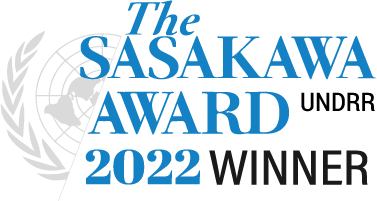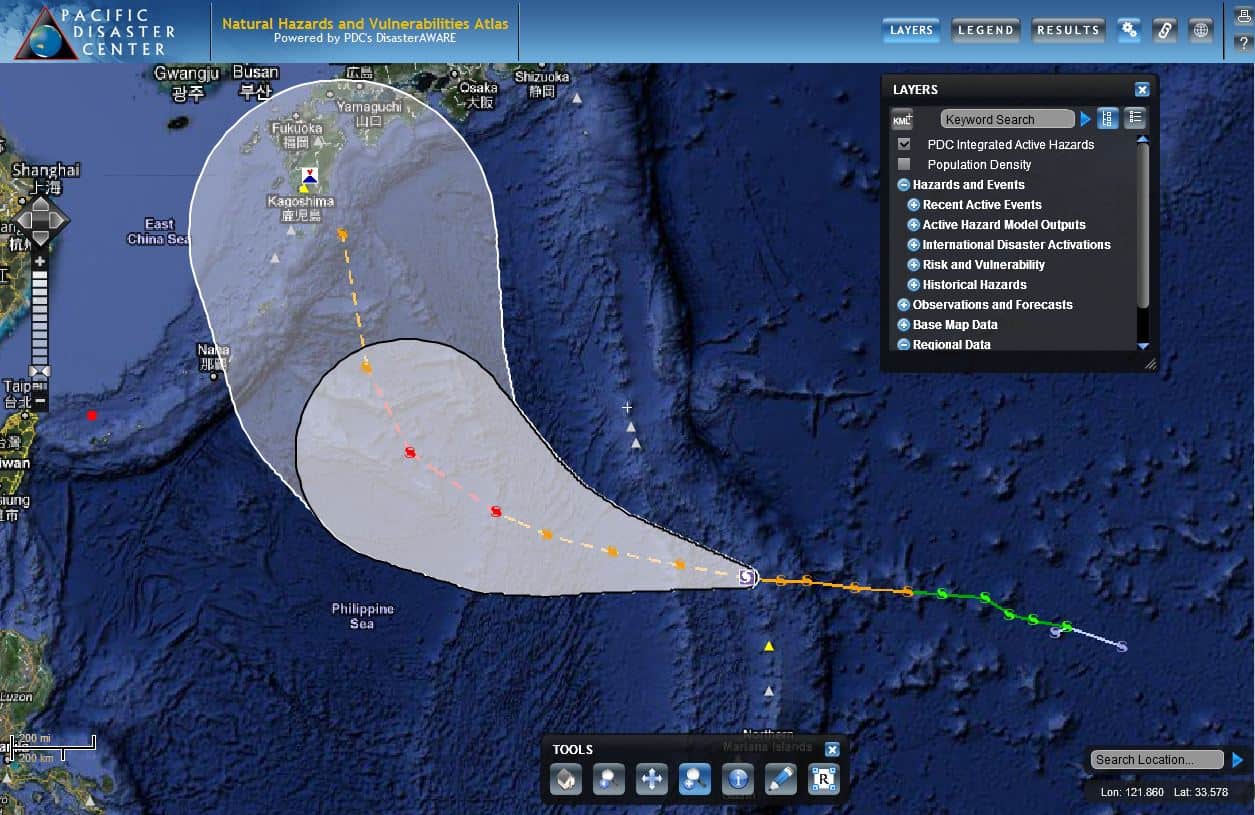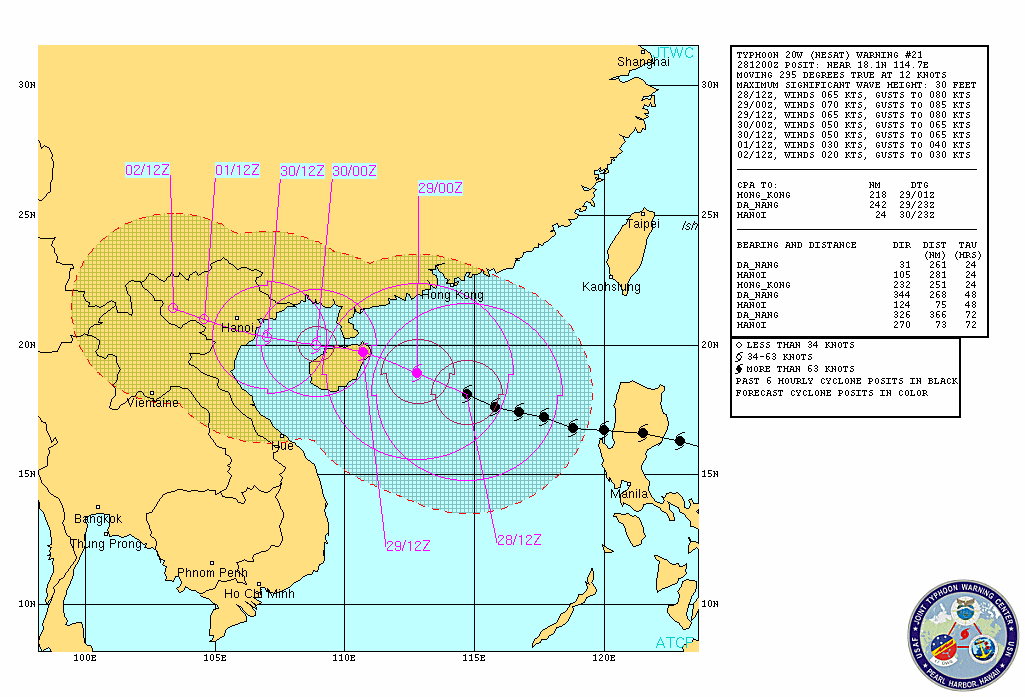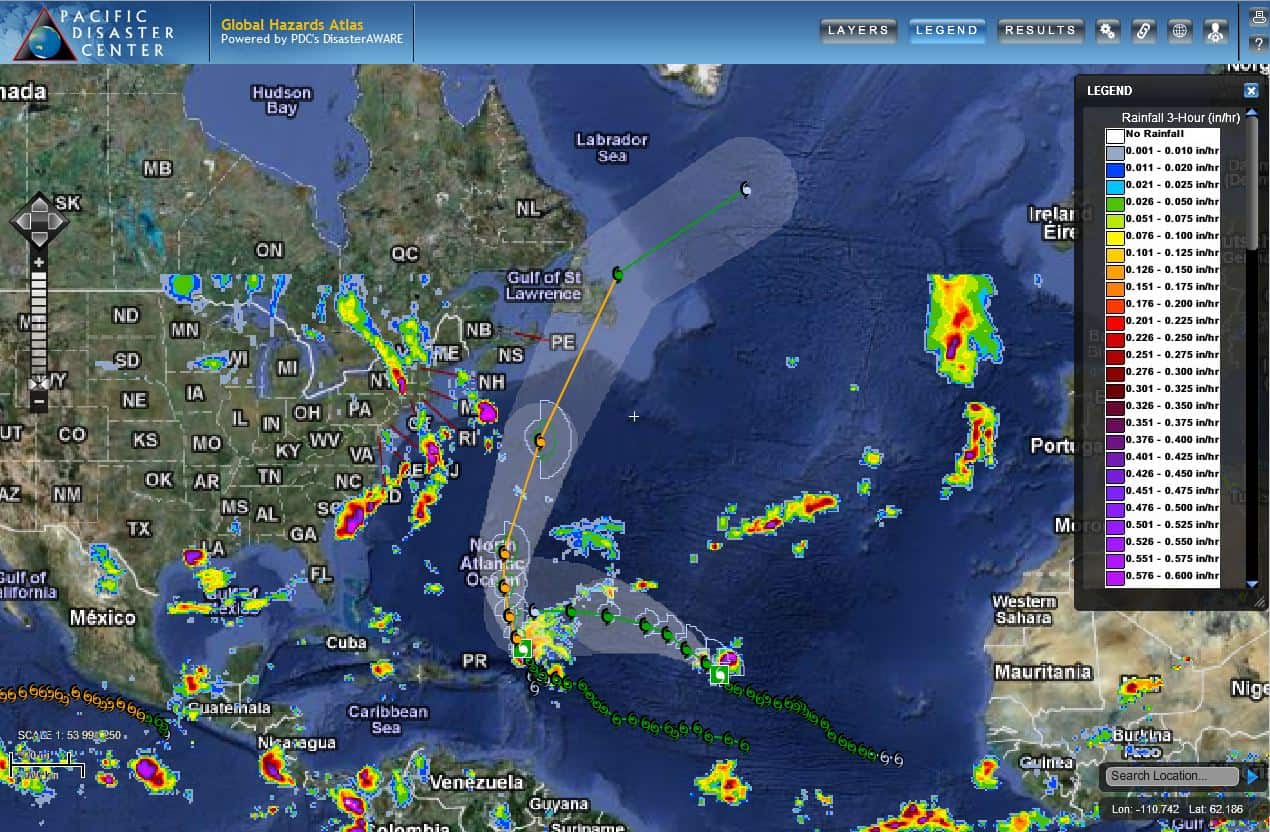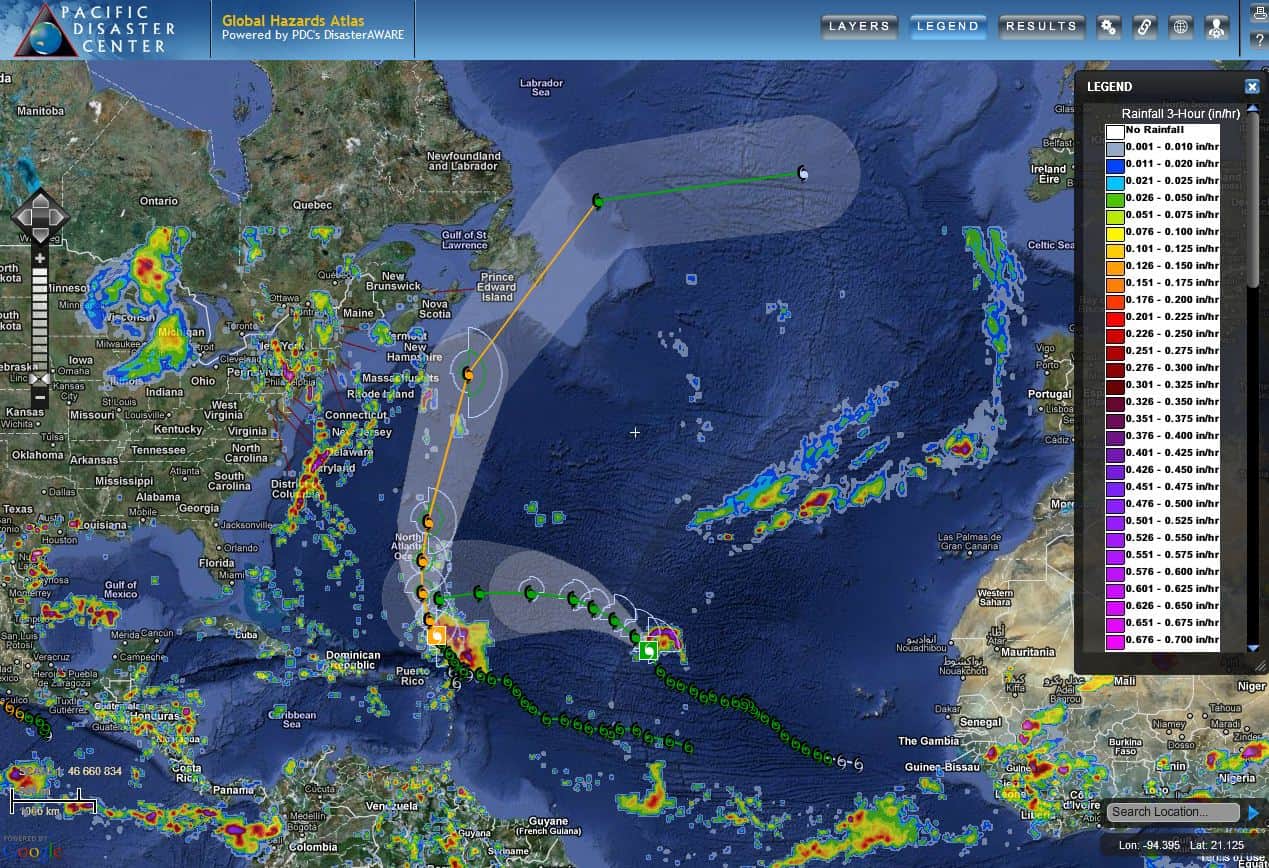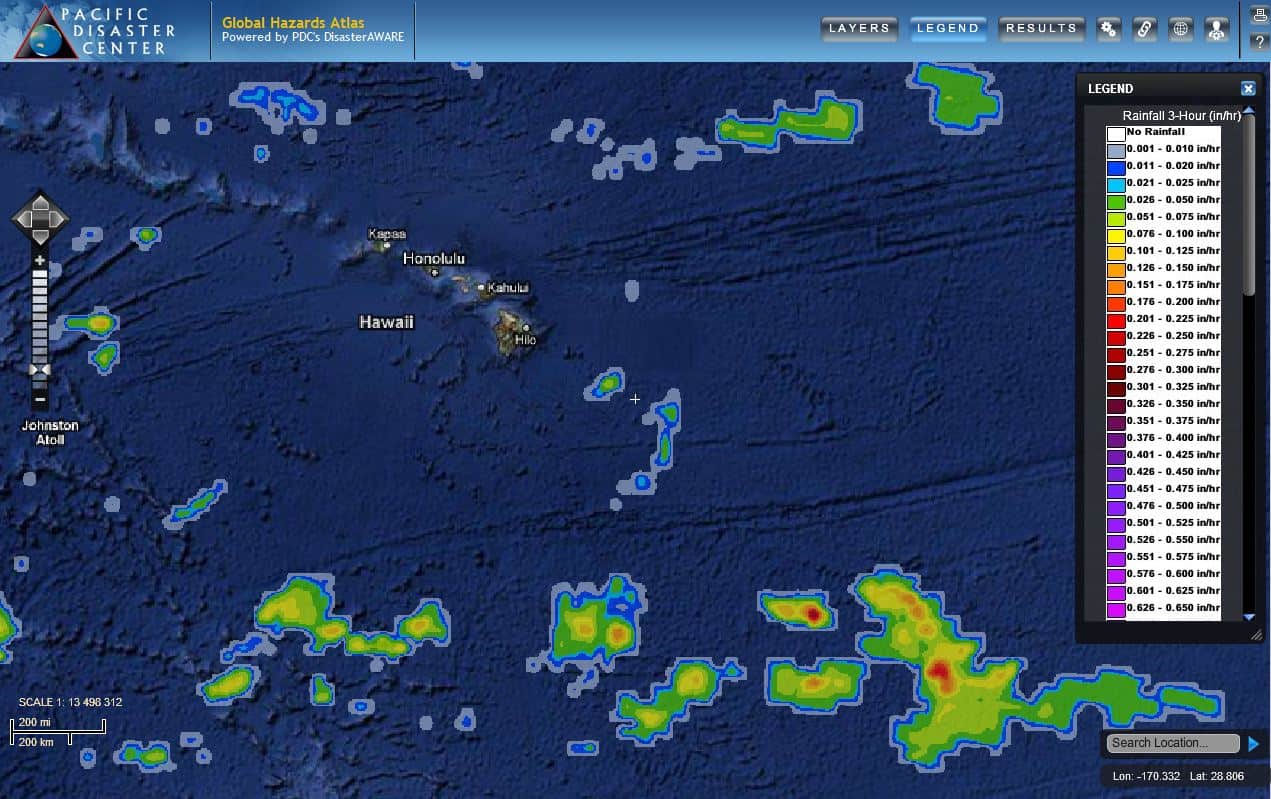The University of Hawaii’s applied science and research center, Pacific Disaster Center (PDC), shared the results of a year-long collaborative research and analysis effort undertaken in partnership with the U.S. Indo-Pacific Command (USINDOPACOM)’s Office of Women, Peace and Security (WPS) on April 5 and 27, 2022. Delivered virtually as two working sessions on the application of the WPS results, the sessions helped stakeholders understand the drivers of gender inequality and how the WPS Analysis can enhance programmatic efforts to improve gender-based resilience, peace, and security around the globe.
Participants from across the Indo-Pacific were welcomed to the event by USINDOPACOM’s Regional and Multinational Engagement Advisor for Strategic Planning and Policy, Air Commodore Christopher Robson, who described the recent U.S. Department of Defense (DoD) requirements to integrate gender analysis into security cooperation planning and processes.
“This is not only informative, but transformative,” said Commodore Robson. “This is the first time that the DoD has commissioned a research project for an accurate picture of current gender trends across the globe, with a focus on the INDOPACOM region.”
Robson laid out how the results will help eliminate previous gender blind spots and address destabilizing factors within the region due to gender inequality. The analysis, said Robson, will more effectively identify root causes of instability and assist partner nations with the tools to understand the unique security needs of men, women, boys, and girls who are affected by conflict and crisis differently.
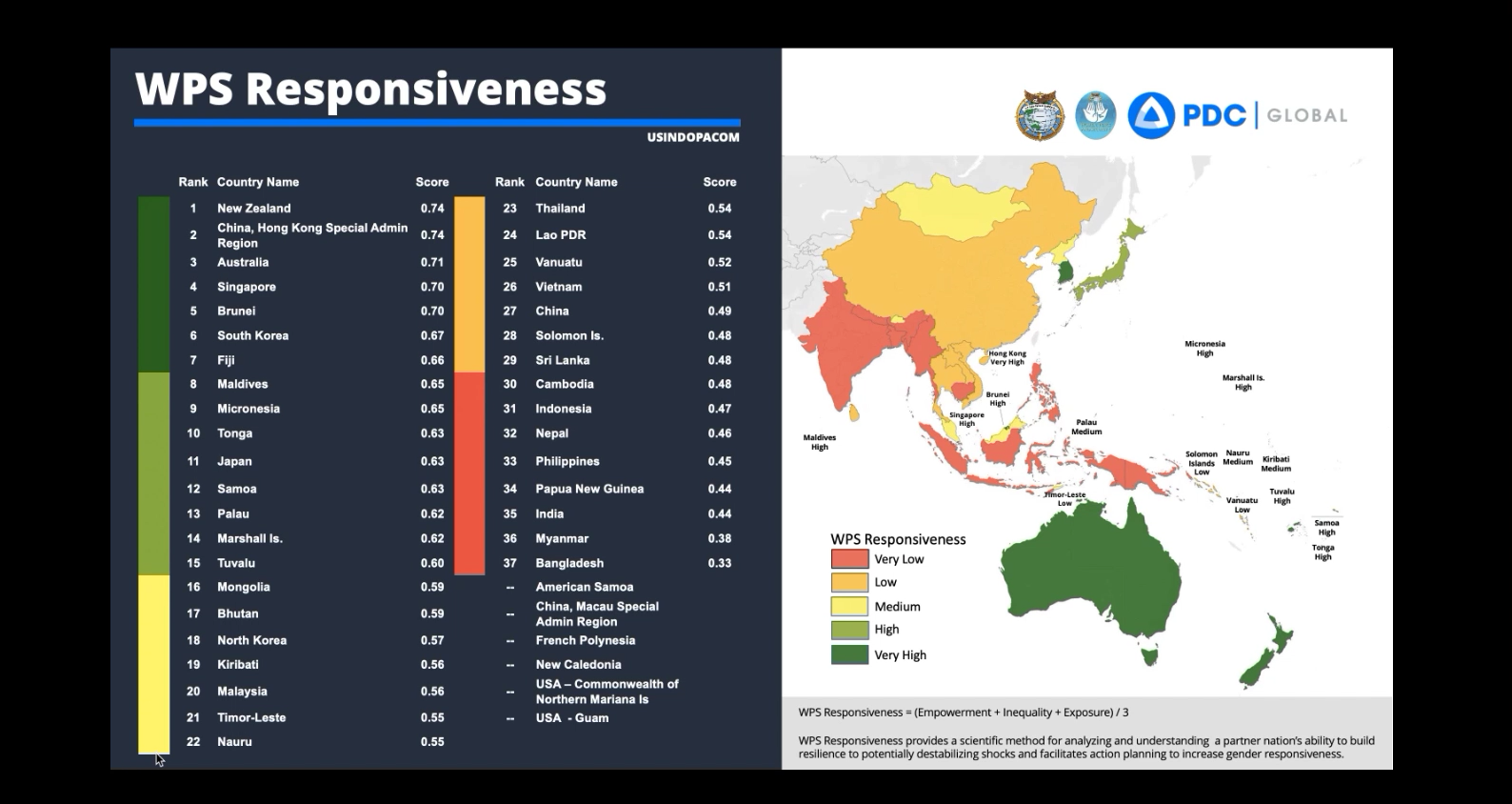
WPS analyst Dr. Dee Sawyers echoed the Commodore’s sentiments, highlighting the significance of the first composite-index, data-driven Gender Responsiveness Baseline Assessment.
Described as a tool to mainstream and operationalize WPS concepts Dr. Sawyers said the body of work provides key indicators of destabilizing factors identified in previous human security research products within organizations such as the United Nations, USAID, and the Red Cross. “The baseline assessment analysis reinforces DoD policies and practices and provides practitioners and planners with a new tool—supporting clearer analysis and planning at INDOPACOM and across the U.S. government. For example, in developing 10-year whole-of-government plans at U.S. embassies for U.S. Strategy to Prevent Conflict and Promote Stability partner countries.”
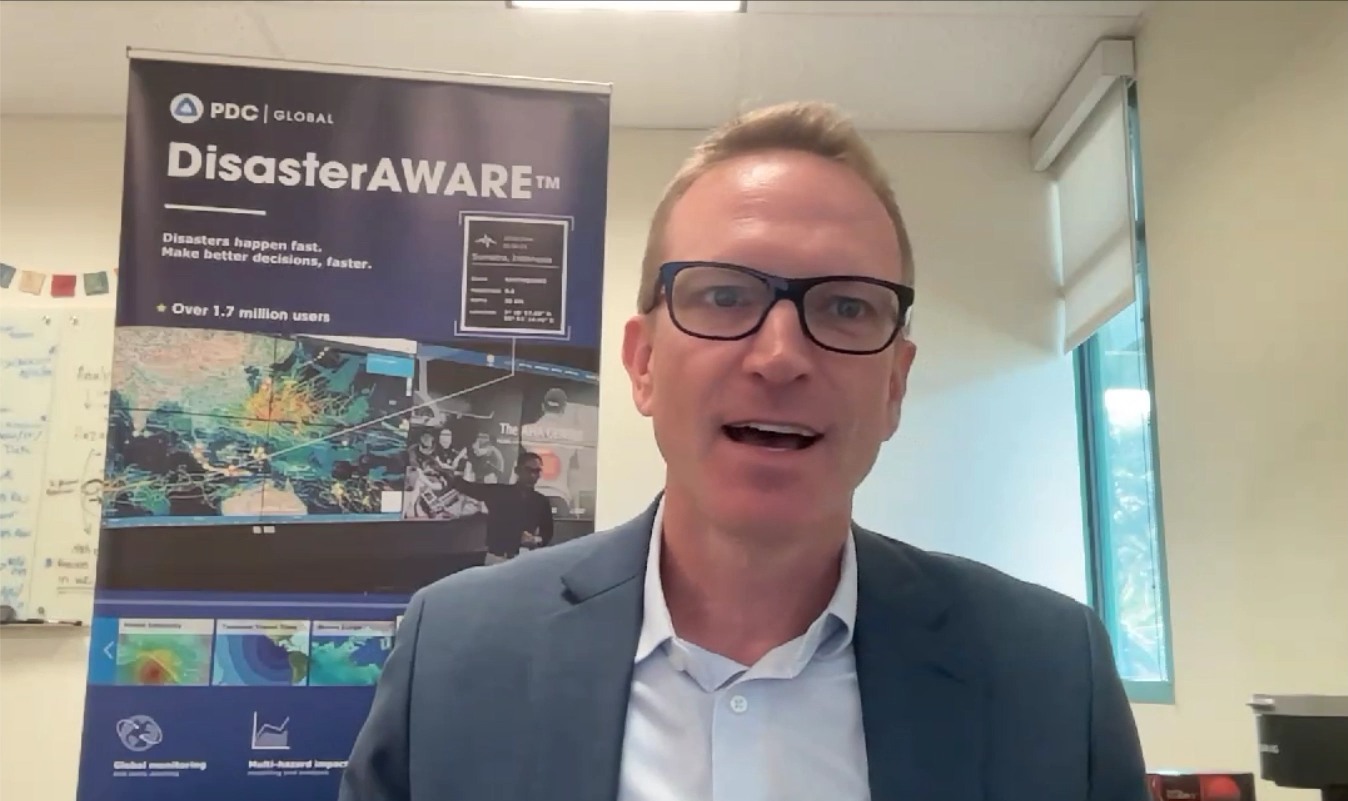
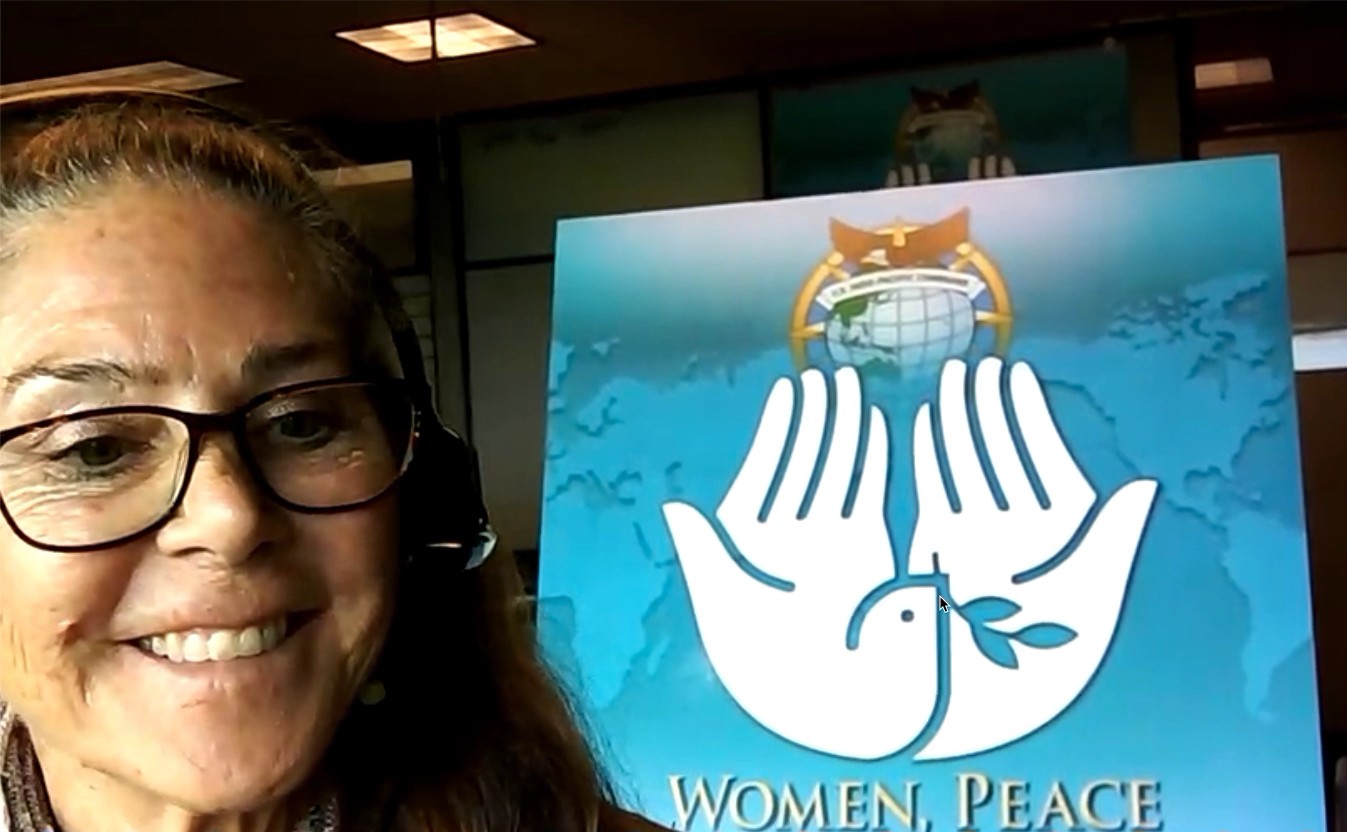
The methodology and regional results were presented by PDC’s Dr. Joseph Green, Director of Applied Science and Advanced Analytics. He shared how certain indicators, while not often perceived as gender-oriented, can be cross-cutting and impact gender-based security concerns. At the close of the session, key discussion takeaways included the ways in which USINDOPACOM could leverage the WPS analysis for its own security planning activities. WPS analyst Dr. Dee Sawyers further showcased several avenues for working with partner nations to eliminate barriers to women’s participation in their own national security forces and programming.
“I want to thank each of you in the audience for your efforts to integrate WPS into your security cooperation engagement design and partner nation capacity building, and for your overall human security focus. This is indeed a paradigm shift in our approach to human security, and it requires the application of new tools such has what has been showcased today.”
PDC has also worked with U.S. Northern Command and U.S. Southern Command for similar assessments in their regions. PDC is committed to ensuring that underrepresented populations are included in analysis across all domains affecting humanitarian assistance, security, and disaster risk reduction.
